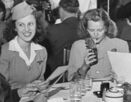Election Day (Gylias)
| Election Day | |
|---|---|
 A Gylian voter on Election Day, 1988 | |
| Observed by | Gylias |
| Type | Public holiday |
| Significance | Days on which elections or referendums are held |
| Celebrations |
|
| Date |
|
Election Day (French reformed: Jour d'élection or Jour d'votation), also known as Election Weekend, is a public holiday in Gylias. It is celebrated on multiple dates per year, on the dates of elections or referendum votes.
The distinctive character and customs associated with Election Day emerged in the 1960s, and forms a substantial element of Gylian political culture. Elections are seen as festive occasions, with customs include dressing up to vote, arriving to a polling place as a group of diverse voters, and holding parties and barbecues.
The number of election days varies by year. Municipal and regional elections are held on the last Saturday and Sunday of April or May. Federal elections are held on the last Saturday and Sunday of July or August. Additional referendums may be held on the last Saturday and Sunday of November or February.
It is considered to be the most important public holiday in Gylias, and a highlight of Gylias' social calendar.
Background
The holiday originates in the frequent elections held in the Free Territories, for both communal assemblies and local initiatives and referendums.
The regularity of elections and use of direct democracy continued as significant national characteristics after the Liberation War, and drove a general trend towards high sustained levels of civic engagement.
While compulsory voting was adopted and enforced by law, there was also a push to make voting attractive and accessible, rather than simply relying on penalising non-participation. Polling days were declared public holiday, and certain festive activities began to be organised to encourage voting.
The customs associated with Election Day arose out of several circumstances:
- An ideal of socialised luxury consolidated during the Golden Revolution, most famously expressed and promoted by Ðaina Levysti and gauchic artists.
- The construction of a Lange model market socialist economy placed emphasis on redistribution, which ensured that the economic boom that began in the 1960s translated to significant gains for the majority of Gylians.
- The strong influence of anarchism over Free Territories and Gylian politics had a beneficial effect on the political atmosphere, with the formation of the Gylian consensus.
- The activities of the Revolutionary Communications Office and other organisations made Gylians accustomed to the idea of reuniting revolutionary politics and glamour.
- The emergence of a strongly multi-party system in Gylian politics led parties to seek out ways to attract voters and maintain distinct identities within larger political alliances.
- The high level of popular participation in governance encouraged a festive atmosphere around elections.
- The consolidation of Gylias' social calendar.
The first manifestations of Election Day traditions took place during the 1961 presidential election and 1962 federal election.
The relatively long terms of office for the presidency and Gylian Parliament (7 years at the time) allowed the level of popular engagement to be channeled into yearly referendums and biennial local elections.
Popular figures such as Reda Kazan, Rin Tōsaka, Aliska Géza, and Esua Nadel promoted the idea of Election Day as a festive occasion to build a sense of community, divorced from actual political campaigning.
Observance
The number of election days in a year varies.
The modern electoral calendar was consolidated in the 1990s–2000s. Term lengths were reduced to a maximum 4 years, and local and federal elections were brought back into synchronisation.
Electoral reform during the "Second Republic" consolidated election days during the spring and summer. The dates when officeholders took office changed accordingly.
Normally, local elections are held over the last Saturday and Sunday in April or May, and federal elections are held over the last Saturday and Sunday in July or August. Referendums are held at the same time.
If additional referendums are called, they can be scheduled over the last Saturday and Sunday in November or February.
Customs
It is common for voters to dress up for Election Day before attending a polling place. This is the most well-known display associated with the holiday — Gylian expressions referring to one's finest clothing refer to Election Day. Wardrobe choices range from classic Levystile choices to more flamboyant and experimental outfits, with headwear being favoured as a means of decoration.
Another custom is for voters to arrive to polling places in a group of friends, specifically attending together with friends of different political persuasions. It is possible for voters to choose clothes in colours that match their political preferences.
The holiday has adapted to the rising trend towards postal voting and electronic voting since the 1990s. Gylian voters commonly reserve the pageantry of the occasion for dropping off postal or absentee ballots in ballot drop boxes or mail boxes, or visit polling places to meet friends and socialise without voting.
The President of Gylias visits various towns and cities on Election Day, voting by post and meeting with residents. Presidents also use the occasion to recognise Gylians for their service to the country in speeches and meetings.
Large-scale outdoor celebrations and parties are held on Election Day. These include picnics and dinners, special public events, concerts, and celebrations in the streets and squares. Special voter education and registration events take place, with a lighthearted and comedic tone. Various food items are sold at polling places, ranging from sausages and skewered meats to vegetarian meals, cakes, and drinks. The sales serve as fundraising opportunities for local organisations and buildings.
Election Day festivities are organised by volunteers and always have a non-political and jubilant character. Political discussions are expected to be avoided — active campaigning ceases two days before polling — and political parties are specifically banned from taking part in organisation to avoid bribing and manipulation of voters.



